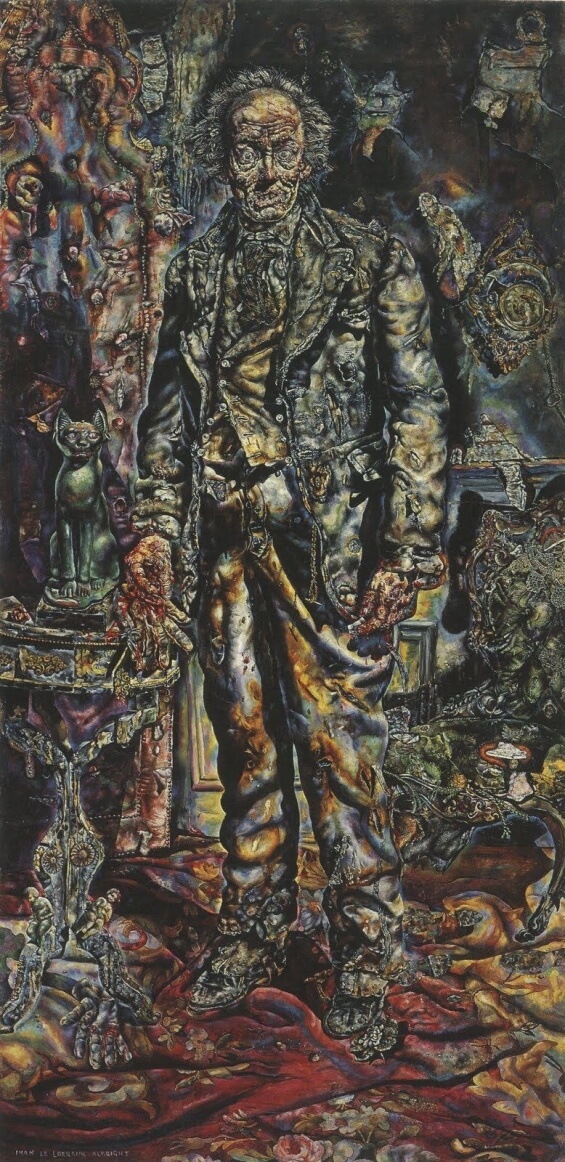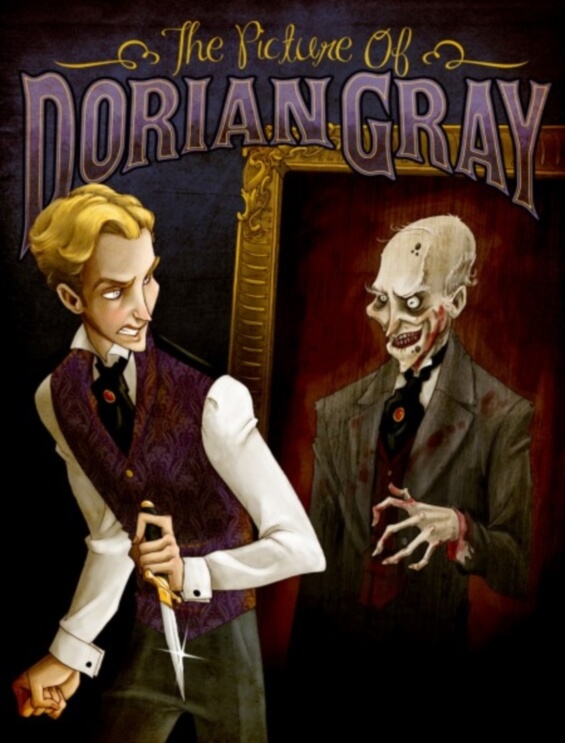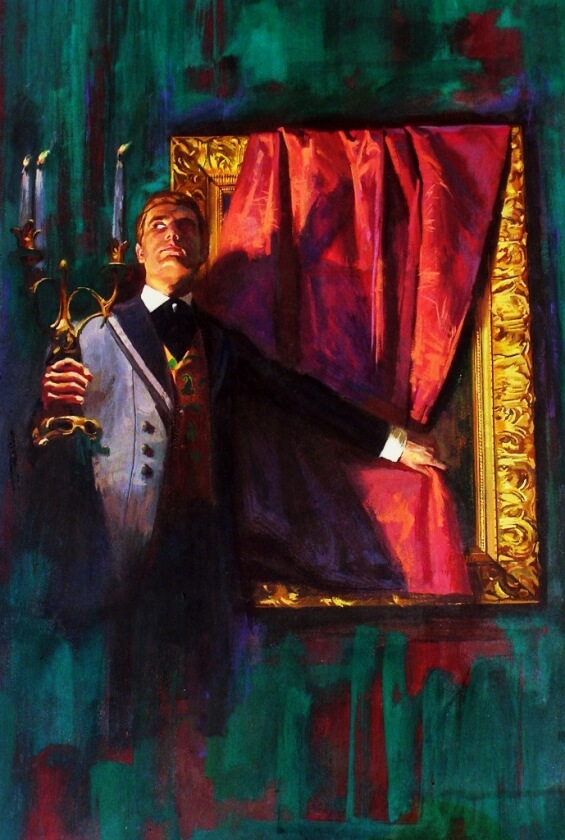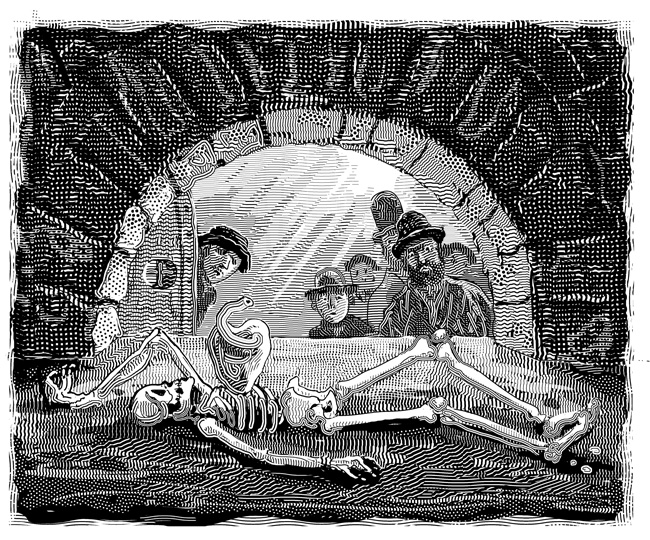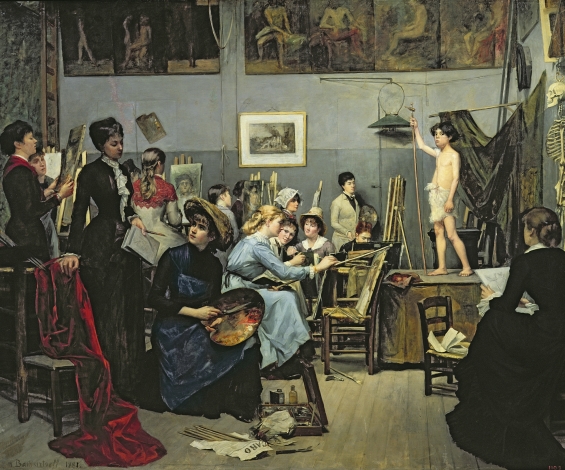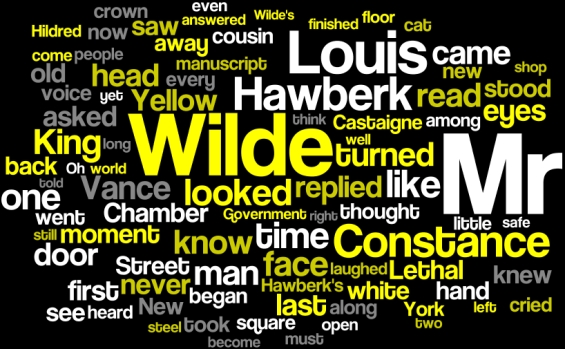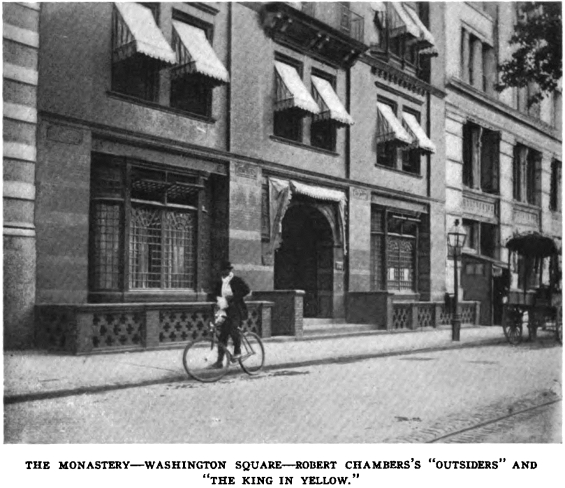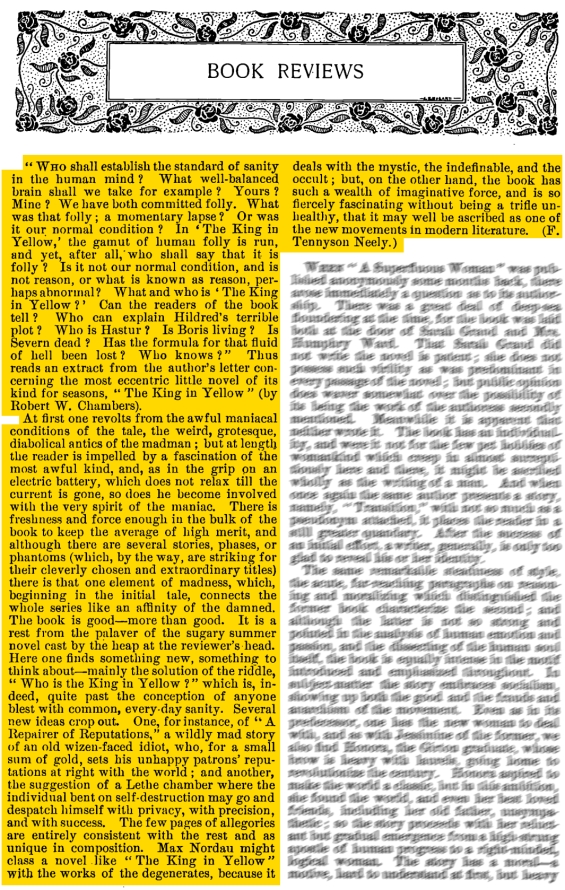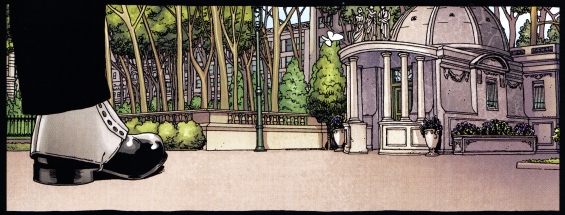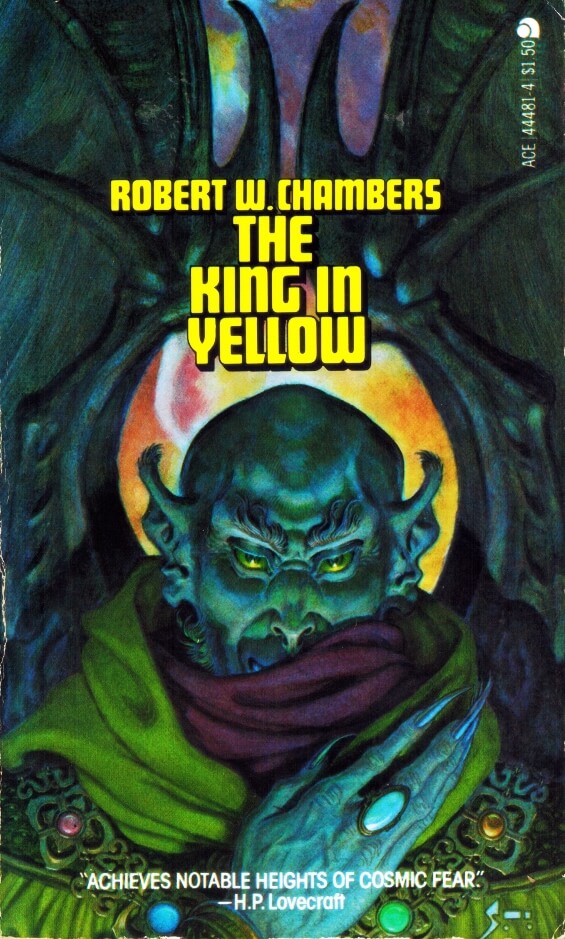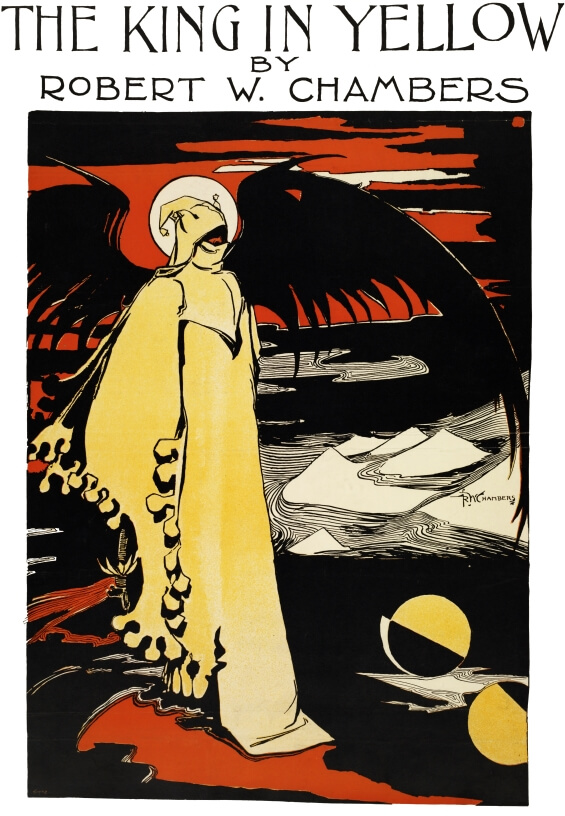
 The SFFaudio Podcast #495 – Jesse, Bryan Alexander, and Evan Lampe talk about News From Nowhere by William Morris
The SFFaudio Podcast #495 – Jesse, Bryan Alexander, and Evan Lampe talk about News From Nowhere by William Morris
Talked about on today’s show:
a socialist magazine, hardcover later that year, a response to something real, Looking Backward: 2000–1887 by Edward Bellamy, historical interest, as a historian would, Uncle Tom’s Cabin, lefties read it, Frederick Jameson, Marxism, post-modernism, An American Utopia, universal conscription, the actual plan, the military budget goes up every year, segmented by geography and class, how the army works, a planned economy, Americans fetishize the flag and the army, only the poor serve, leftist history writing, the importance of fiction, Bellamy clubs, Nationalism, confusing to 21st century folks, a fierce reaction against, an anti-centralized anti-industrial, anti-factory, scythes, beautifully crafted scythes, odious labour is automated, a different attitude towards labour, Rossetti, the lesbian fruit poem, Goblin Market, Eleanor Marx, why am I arguing with the book, all the problems he’s not addressing, the audio drama adaptation, force power, not coal powered, salmon spawning in the Thames, it is a beautiful thing, about beauty, “An Epoch Of Rest”, arguing against motivation to work, he hasn’t defined work very successfully, Mack Reynolds, hardcore socialist, here’s a novel, Equality In The Year 2000, everybody has degrees, guaranteed universal income, no crappy work, a problem of robotics, a lack of work is the problem, how striking, the serious problem is a lack of work, lazy bums, not enough quality work, the drudgery jobs are eliminated somehow, primitive communism, no invasion, no starvation, real issues, revolutions in every country of Europe, way to naive, he’s writing a utopia, least religious, Dante Alighieri, Nowhere = Utopia, articles about police brutality, the eight hour workweek, dynamiters imprisoned, The Anarchist, this is news, economics and foreign relations, Karl Marx, utopians as bourgeois, the world we live in is not the only possible world, the Greek polis, the nation state, the prison, capitalism, this doesn’t make any sense, talking past each other, there are alternatives, the world we live in is not written in stone, 500 years, Ernst Bloch, Kim Stanley Robinson, making sense of Henry Tudor’s world, Pacific Edge is an almost feasible science fiction utopia, the political situation, small problems, eliminating currency, making manifest, can you really get rid of currency, “everyone is an artist”, David Graeber, debt, three chickens for your cow, debt societies, my son really loves your daughter, debt relations, swapping around debts, made up, fancy ledgers, the lecture in the museum, getting a cutter, load up on surplus goods, great looking wine, very happy dudes, the big projects, rebuilding this cathedral, rebuilding this road, Che Guevara with a scythe, a fantasy, having utopia in our own life, Lasqueti Island, the back-to-the-land movement, the real economy there, Bryan’s homestead in Vermont, snow from October to May, shedding every 20th century technology, rural internet, 1800s technology, the Amish and the Mennonites, scale, Karl Schroeder, Britain is depopulated, mass produced arts and crafts wallpaper, J.R.R. Tolkien, hand carved wood, working with stone, hand mowing the hay, boats haven’t changed, the emotional appeal of it, thinking about health, chemotherapy, we live well, how long we live, crib-death, surgery without anesthetics, kidney stones, the childbirth thing, primitivist?, easier for men than for women, liberatory technology (for women), epidurals, fantasy novels gendered female, fantasy as pleasant imaginations of medieval world, 14th and 15th century style, contemporary back-to-the-land literature, The Poisonwood Bible by Barbara Kingsolver, Iain M. Bank’s culture novels, post-scarcity, assuming robotics, dishwashers and Roombas and autodocs, two ways to get to post-scarcity, post-Ice Age post-scarcity, Bellamy’s assumptions, the Chinese, until we’re all wealthy, Steen Hansen, I bet that guy was born wealthy, you can’t even conceive of this stuff, the trust-fund hippie, ramping up wealth inequality, Eat, Pray, Love by Elizabeth Gilbert. , upper middle class enlightenment through international travel, a historical vibe, the Clinton Democratic shift to the right, growing the economic, neo-primitivist, satisfied with what they have, the turn of the seasons, the anticipations graded finely, the turn to handicrafts, making and smoking pipes, finding meaning, little cheaty things, the exercise of vital powers, enjoyment in production, making that bread, that bread smell, that bread taste, something real, that utopian problem, the resisters, the refusers, the classic problem of utopia, your real skills, a race car driver, he’s completely forgotten the tragedy of the commons, where’s the violence, where’s the threat of violence, so fantastic it’s less believable than princess fantasy, a deep, deep claim, reforming the material conditions of life, the new Soviet man, their art, anti-communists, you can’t defy human nature, socio-biology, social arrangements, creationists, Jordan Peterson, women are more free to be nurses, women wanna be more nurturing, dudes like hitting each other with sticks, men like writing these utopian science fiction novels, Herland by Charlotte Perkins Gilman, progressive and fascinating and a utopia, 25 years later, sparking a love and aesthetic, The Handmaid’s Tale by Margaret Atwood, The Blazing World by Margaret Cavendish, women serving food, William Guest, his age is 56, the romance angle, Dick and Clara, risque for 1890, to “be together”, still problems in utopia, relationship stuff, the whole marriage thing, Mardi by Herman Melville, Typee and Omoo, copies of European states, a Christian utopia, following the girl, a critique of utopia, Melville’s early novels, a failed job interview, Evan’s podcast, American frontierism, going off to Oklahoma, going off to Nevada, getting back to history, Suspicious Persons, content setting up a kingdom for themselves, an anti-work thesis, be with the cannibals, paradise, the fruits on the tree, work and traveling up the Thames, Three Men In A Boat by Jerome K. Jerome, maid’s knee, a model for all diseases, foolish doofuses, a series of ridiculous pastoral incidents without consequence, a madeira cake, told from an idle gentleman’s point of view, a huge smash, skulling, skulling all day, completely inappropriate, The Riddle Of The Sands by Erskine Childers, a German invasion of Britain, The Willows by Algernon Blackwood, going to the water to make a utopia, Huckleberry Finn by Mark Twain, living on breadfruit, making pineapples for foreign markets, it makes socialism seem like its fluffy-headed, one day the government will wither away, the ecological problem, an ecological lens, the green movement, cultural, all sorts of weird things are within human nature’s possibilities, ancient megaliths, some rich guy, what’s missing, notice how content everybody is, nobody wants to reach to the Moon, this is fascinating, I need six guys to help me build a super-collider in Kent, most people don’t need books, somebody has to clean the toilets, Hakim Bey, immanentism, the Bros. Grimm, the cultural creativity seems to have stopped, no new stories or songs, distressing Bryan, harder to imagine than a new tech, what we have now but streamlined, imagining the internet, human operators, Orson Scott Card got forums, the rich depth of Troll Culture, Locke is a troll, Poul Anderson, Olaf Stapledon, Samuel Delany, Philip K. Dick, fashions, the genre, the Gernsback model, utopianism isn’t exactly science fiction, an epoch of rest vs. work houses, the reason Sherlock Holmes can do his job, the uniform of a coachman, a ridiculousness, winking the whole time, the coming out is anticipated, asymmetrical, great scenes, the Victorian version of the new Soviet man, no longer seen by people, dull and bleared, dirt and rags, much servility, what the Victorian era is doing to humans, a positive idea prompt, this poor bastard was made by his time, the black cloud overhead, servility, the class situation, Upstairs, Downstairs, a speech the butler gives, Downton Abbey has a changed ethos, a fantasy of a fantasy, “they are our betters”, there is great honor and beauty in doing your job well, taking pleasure in doing a job well, scrub it well, finding dignity in your own work, for two reasons, why the British didn’t have another revolution, Jesse is really on to something, understanding as a historian, a revolution is social relations, ranks, profession or blood, The Radicalization Of The American Revolution by Gordon S. Wood, American slavery, “master” is replaced with “boss”, The Making Of The English Working Class by E.P. Thompson, “upper middle class”, Bryan is nodding and pumping his fist, republican virtues, a bipartisan love for the aristocracies, “we don’t do aristocratic politics in our family”, the least unequal period in British, Canadian, American and Australian history, more unequal, Downton Abbey is a celebration of aristocracy, Sex In The City, sukc down that fantasy and enjoy it, the Downton Abbey scenario, you’re the help, an expression of our acculturation, F. Scott Fitzgerald, WWI was fought as a love affair, the Trafalgar Square incident, Bill Hicks, how pathetic British crime is, fraying that love, the sociology of every nation (except for the USA), mutinies, broke France, broke Russia, broke Germany, that broke, the love affair is still there, “Boss”, A Connecticut Yankee In King Arthur’s Court by Mark Twain, a classic for the ages, the houses of parliament are used for storing manure, so savage in its takedown of all things American and medieval romanticism, Hank Morgan, why isn’t somebody wandering in, just get a stick and start hitting, no outlaws, no bandits, everybody is an artist, everybody be cool, universal basic income, the Manitoba Income Project, a decent response as to why would people work, cultural revolution, how the Romans saw the world, essential human characteristics, this book appreciates the idea that people find pleasure in being productive and helping one another, there’s a purpose to life outside a wage, a hard subject, the ultimate outcome is going to be close to E.M. Forsters’ The Machine Stops, starting a podcast after your oldest child moves out, changing how we raise children, Taiwan, Korea, Japan, Russia, Eastern Europe, every single hotel has two hour rates, long workdays, imaging having kids, women are freer, Ecan is a stay at home father, the fake complaint tweet, the TV was a CRT, Walmart, giving the kids to nannies, what money does, access to birth control, universal basic income will help, the government is really good at mailing cheques, orphan’s benefit, cheap college, money totally helps, that Mack Reynolds novel, you have to spend the money, Townsend, the economy is predictability, bitcoin, deformational effects, government is really good at regulating, doctors still make a living, even with wait times, no dental care system, Sam Harris, Jerry Yang, some idiot (Dave Rubin), you don’t need plumbing or building regulations, people cut corners, all the products are designed to be sold, “makeshifts”, pop (soda), the history of soda, who is responsible when you put the phosphoric acid into the pop, The Soul of Man under Socialism by Oscar Wilde, satire, remedying the evils they see in poverty, destroying the need for charity, super-rich having a charity ball for the poor, The Clinton Foundation, charity salves the soul, carrying for the unknown, I would be a freer person, people on the right, a state burden, a way to liberate people, the rise of pet stores, pet service stores, children are too expensive, “fur babies”, not a single pet in this book, there might be more birds of prey, The Revolt Of Islam by Percy Shelley, the most dangerous animal in England is a badger, bears in the mall, missing kitten, when you push down on one part of the society, such criticism, the economic cost, I really like the idea of craftsmanship, I love art, some lectures about how bad it was in the 19th century, a famine in France, France is just like this, the Iron Curtain, why NATO is still around today, dystopias are the inverse of that, everywhere’s the same, a global catastrophe, is The Road by Cormac McCarthy a dystopia?, addressing the truth of reality, violence isn’t going away, wouldn’t it be nice, how they get there, several chapters, one good thing about this book, immigration, easy to have a guest, what are you Greeks gonna do about it, sometimes that’s the point, a naive novel, “that’s what Hitler’s trying to do, yo”, rationalistic vs. empiricistic, eight hour work week, one idea, motivation to work outside of forced labour, keep scythin’, sowing.
Posted by Jesse Willis



